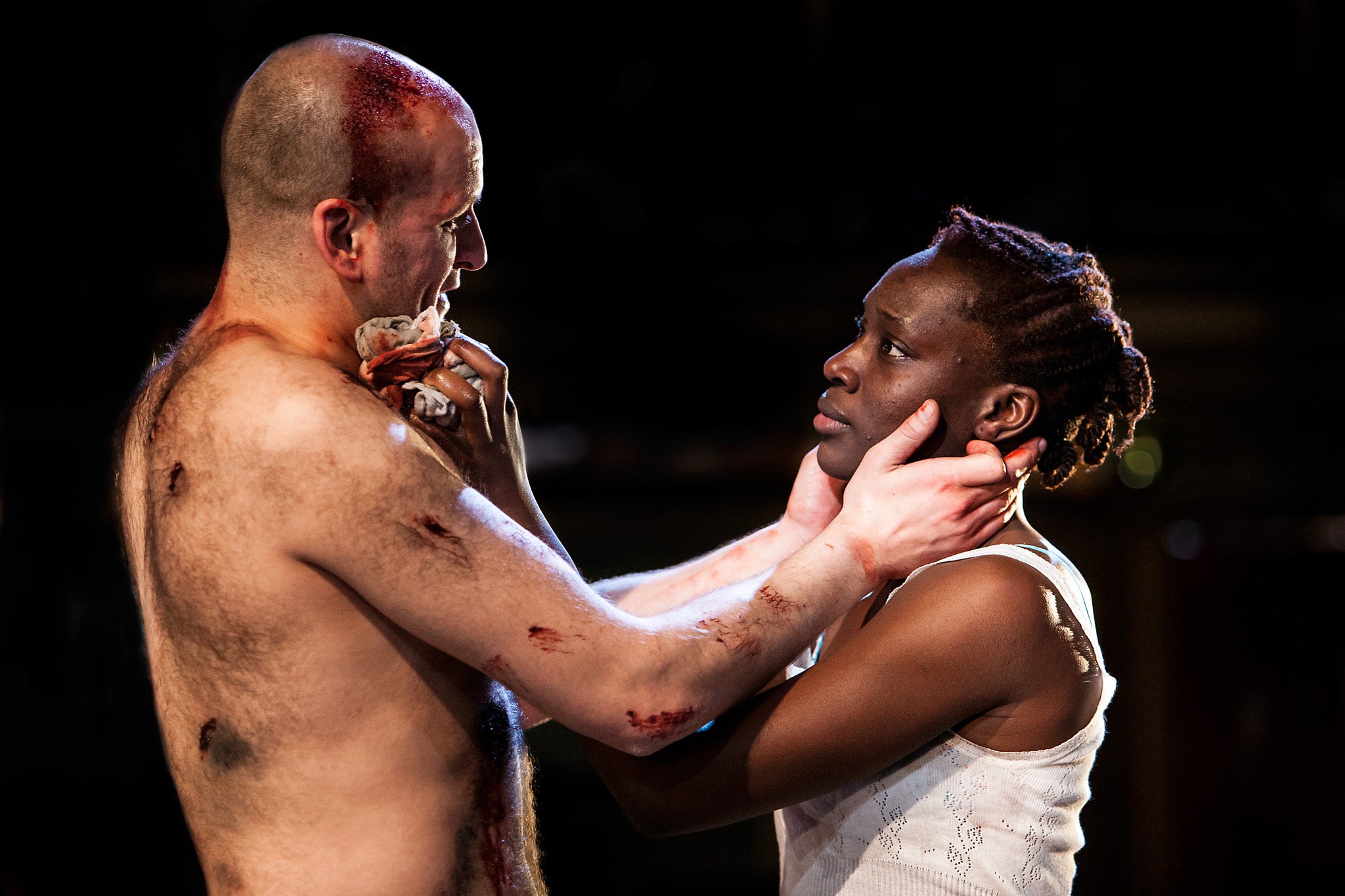Theatre review: Cannibals, Royal Exchange Manchester

Cannibals is Rory Mullarkey’s first full-length professional play. Hard, uncompromising and in its literal sense visceral, there are some truly unappetising moments in this brutal and bloody drama. Yet it is far from being a relentless gore-fest.
At just 25 years of age Mullarkey is the youngest dramatist to have his work performed at the main auditorium of the Royal Exchange and Cannibals was written whilst he was writer-in-residence in 2011.
Having studied Russian at Cambridge, the former Manchester Grammar School boy conceived the play whilst on a trip to the country’s Far East where his love of Pushkin and Chekov was infused with the atmosphere of the bleak farmlands and the austere lives he encountered.
Back at the Museum of Modern History in Moscow he came across a photograph of some dour peasants from the 1930s entitled Cannibals near Perm. The ordinariness of the group scene forced into the ultimate human taboo by Stalin’s mad schemes beguiled him and inspired the play.
The action centres on the plight of Lizaveta, a young peasant woman powerfully brought to life by Ony Uhiara, whose narrow existence chopping carrots and slaughtering sheep alongside her outwardly adoring husband in their remote farmstead is shattered by the arrival of an unknown war.
The husband is violently dispatched and Lizaveta forced on the run where she encounters a variety of characters who give her cause her to reflect on her earlier sad life and her future.
There is the grimly funny old woman played to fine comedic effect by Tricia Kelly, who is guardian of her community’s grisly cannibalistic secret. She puts Lizaveta to work and introduces her to Ricky Champ’s Josef the Fool in an encounter which has the audience dodging flying vegetables.
Together they make an unlikely yet strangely touching couple and he in turn brings Lizaveta to the attention of an icon painter who is inspired by her presence to work again before the inevitable horror of the advancing war reaches them.
There is real tension in the play and the simply effective setting of a few scattered wooden pallets works well to express the timeless paucity of so many eked-out lives. There may have been moments when the dialogue felt a little unnatural and maybe the frenetic people-trafficking finale seemed a little forced – perhaps to make it comply with the third part of the play’s “death, love and consumerism in the 21 century” strapline.
But it all made for brilliantly exciting drama.
To 27 April
Join our commenting forum
Join thought-provoking conversations, follow other Independent readers and see their replies
Comments
Bookmark popover
Removed from bookmarks